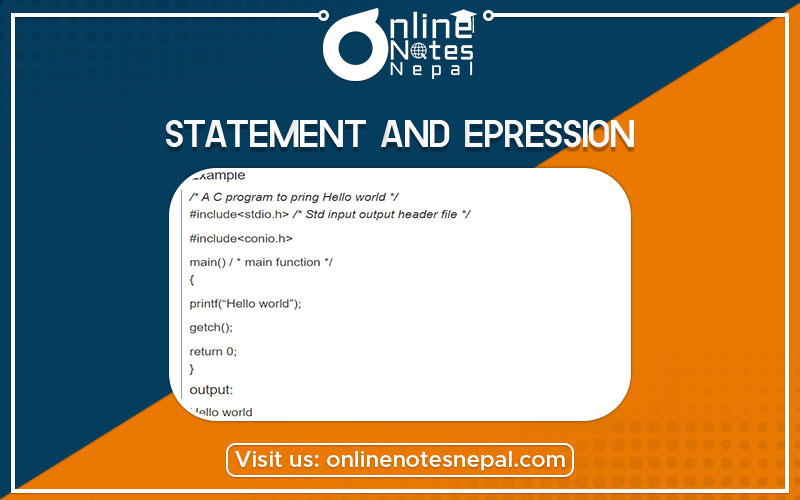Published by: Nuru
Published date: 21 Jun 2021

A statement is a complete direction instructing the computer to carry out some task. In C, statements are usually written one per line, although some statements can span multiple lines. A statement consists of expression, literals, and other variables. C statements always end with a semicolon (except for preprocessor directives such as #define and #include)
The C compiler isn't sensitive to white space. When the compiler reads a statement in the source code, it ignores white space.
Thus, the statement
All are equivalent
Note: But Within literal string constants, tabs and spaces aren't ignored; they are considered part of the string.
For example
in “C Programming Language” -the spaces also part of string not ignored.
print(
"Hello world!"
);
However,printf("Hello, world!" ); is not legal
The reason is to break a literal string constant line, we must use the backslash character (\) just before the break.
Thus, the following is legal:
printf("Hello,\ world!");
If we place a semicolon by itself on a line, we create a null statement i.e. a statement that doesn't perform any action. This is perfectly legal in C.
e.g. the null statement is: ;
A compound statement, also called a block, is a group of two or more C statements enclosed in braces. Here's an example of a block:
{
printf("Hello, ");
printf("world!");
}
In C, a block can be used anywhere a single statement can be used. Note that the enclosing braces can be positioned in different ways. The following is equivalent to the preceding example:
{printf("Hello, "); printf("world!");}
Comments are those parts of the source code which are ignored by the compiler during compilation.
In C, comments are anything written between the characters /* and */
e.g. /* This is my First C Program */
If multiple lines comments are needed, we can use multiple comments each per one line or multi-line single comment using the same starting and ending characters.
e.g.:
/*this is my first c program
to print hello world
*/
In C, an expression is anything that evaluates to a numeric value. C expressions come in all levels of complexity inside a statement.
Simple Expression
The simplest C expression consists of a single item: a simple variable, literal constant, or symbolic constant.
Here are three expressions with description
1) PI - A symbolic constant (defined in the program)
2) 20 - A literal constant rate A variable
3)1.25 - Another literal constant
Note:
• A literal constant evaluates to its own value.
• A symbolic constant evaluates to the value it was given when we created it using the #define directive or in const statement
• A variable evaluates to the current value assigned to it by the program.
Complex Expression
Statements with Complex expressions consist of simpler expressions connected by operators. For example:
6 + 8 is an expression consisting of the sub-expressions 6 and 8 and the addition operator +. The expression 6 + 8 evaluates 14
We can also write C expressions of great complexity:
1.25 / 8 + 5 * rate + rate * rate / cost
Consider a statement: x = a + 10;
Example
/* A C program to pring Hello world */
#include /* Std input output header file */
#include
main() / * main function */
{
printf(“Hello world”);
getch();
return 0;
}
output:
Hello world